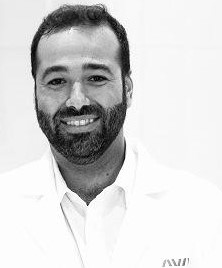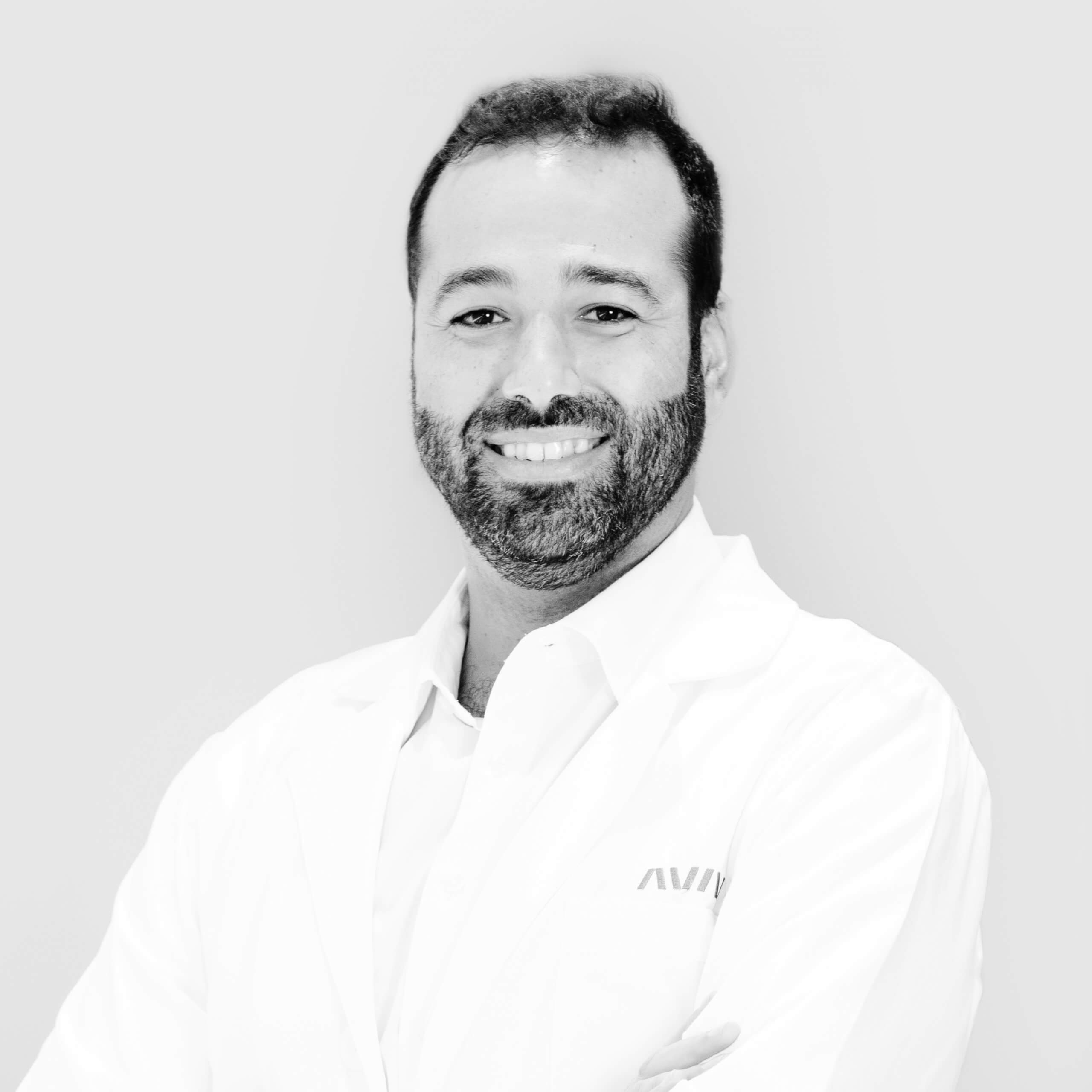
The Future of Human Longevity: Insights from the Global Aging Consortium Longevity Summit
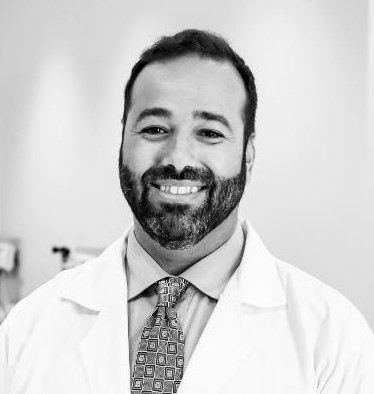

For many individuals, aging means accepting that the energy, independence, and liveliness that once defined their lives will one day be gone.
But what if this wasn’t the case?
The conversation around aging is changing thanks to the tireless efforts of researchers, scientists, and innovative healthcare professionals. Unique, exciting advancements in the science of human longevity offer all of us a renewed hope, one that opens new possibilities to claim control over our later years.
The journey is not merely about adding years to our lives but about adding life to our years.
The 2024 Longevity Summit united the Global Aging Consortium, a group of leading experts and advocates, to offer a look into the new frontiers of aging research and innovation. Join us as we explore key takeaways from this innovative event.

4 Vital Insights to Define Longevity and Healthy Aging
For too long, people have associated growing old with a sense of grief as they picture a future of illness and a loss of independence. Pioneering research offers a new perspective on human longevity, instilling the aging process with hope and purpose.
Insights into biological aging allow us to adopt a new, holistic approach to longevity with medicine, therapies, and treatments to address age-related challenges.
One of these revelations is the emphasis not only on extending one’s lifespan but on increasing healthspan—the number of years marked by good health, without the burden of chronic or debilitating illness.
This means prioritizing proactive and preventative healthcare—specifically care that builds on the research that challenges long-held notions of aging—to truly support a longer life spent in good health. Dr. Eric Verdin, MD, president and CEO of the Buck Institute for Research on Aging, explains how through the following insights.
Insight #1: We Can Change the Rate of Aging
It’s common to view aging as an unstoppable force of decline. However, major advancements in aging science show we can influence and potentially slow down aging.
When we view aging as a treatable condition, we can use new approaches to health and wellness—approaches that focus on the complex mechanisms that drive the aging process, including:
- Cellular senescence
- Telomere shortening
- Oxidative stress
It’s essential to consider the body as a synergistic whole. Systemic, whole-body solutions, like diet changes and specific interventions for age-related disease, “shape the types of therapeutics we develop, focusing on whole-body versus tissue-specific approaches.”
Science shows that aging is influenced by a variety of factors, not just separate organs or systems. Our approach to aging should do the same: Promote whole-person well-being and resilience.
Insight #2: Aging Is the Largest Risk Factor for Non-Communicable Chronic Diseases
For many people, aging is a journey marked with health challenges. Over time, the body becomes increasingly vulnerable to various ailments and conditions, many of which are considered simply normal after a certain age.
Though many factors contribute to the development of health concerns, aging itself is the predominant risk factor for many chronic conditions, including:
- Cardiovascular disease
- Metabolic disorders, like diabetes
- Neurodegenerative diseases, like Alzheimer’s
- Degenerative bone diseases, like osteoporosis
- Various forms of cancer
Fortunately, disease prevention and treatment research has far-reaching implications that can shape our healthcare strategies. This insight solidifies the importance of addressing aging as the primary driver of chronic illness in older adults.
It also highlights another important distinction: the difference between biological age and chronological age. To address chronic disease in later life, we need to “identify markers capable of distinguishing between biological and chronological age” as part of risk identification and mitigation.
Age-related illness does not have to be the norm for everyone. By addressing the aging process, we can begin to lessen the burden of chronic illness as we age.
Insight #3: Regenerative Medicine Takes a Holistic Approach
Conventional medical practices have historically followed the same course: addressing individual diseases and symptoms. This has led practitioners to sometimes overlook the underlying mechanisms contributing to their development and progress.
Americans invest a lot in healthcare, too. A 2023 report shows that the U.S. has a shorter life expectancy than most high-income countries, yet it spends the most on healthcare.
The good news? A paradigm shift is underway. New efforts to improve and rejuvenate aging tissues could offer unprecedented health and human longevity benefits.
Regenerative medicine holds the future of healthy aging.
Imagine if healthcare practices regularly harnessed the body’s natural ability to heal itself. This is the promise of regenerative medicine. It goes beyond disease management toward treatments designed to repair, regenerate, and restore the brain and body to a state of well-being.
Regenerative medicine makes it possible to:
- Heal tissues and organs damaged by aging or disease
- Promote faster recovery times
- Improve and enhance organ and tissue function
- Reverse the effects of certain diseases
- Increase the potential of a longer, healthier life
We know now that the traditional boundaries of medicine are no longer enough to improve healthspan. Instead, the perspectives offered by regenerative medicine have led to the development of innovative strategies to slow down the aging process at the cellular level, ultimately restoring function and vitality.
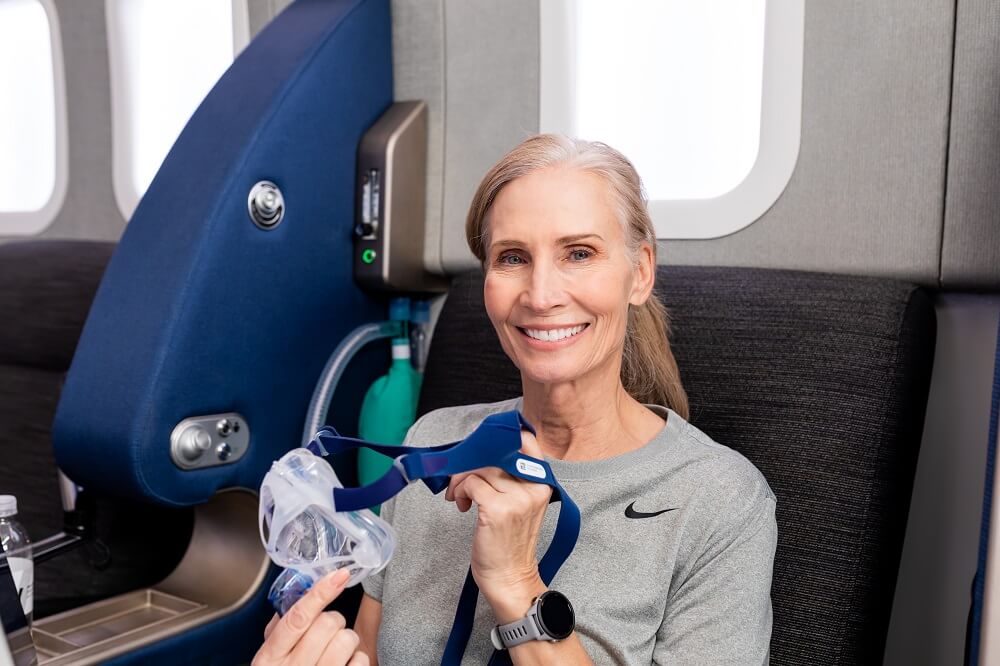
Insight #4: We Can Look at Lifestyle and Genes as Age Drivers
The interplay of genetics and lifestyle has been a major focus for nearly every field of science, and the aging research field is no exception. Research centered on these factors reveals that we may have more control over how we age than previously thought.
Long attributed simply to luck or “good genes,” science now shows there is much more to aging gracefully than genetics. In fact, genetic makeup “accounts for only 25% of human lifespan variability.” Instead, lifestyle factors have a profound effect on human longevity. These include:
- Diet and nutrition
- Exercise frequency and type
- Stress management
- Social interaction
What can you do today to maximize your healthspan and lifespan? Dr. Eric Verdin shares key insights as part of the 2024 Longevity Summit.
Watch: 2024 Longevity Summit—Dr. Eric Verdin
Longevity Predictions
Looking at life expectancy data over time tells us how the human experience has evolved. Life expectancy trends are much different today than hundreds of years ago, and they may change even more dramatically as soon as our current decade. These insights reveal why.
- From 1850 to 2020: The average person gained approximately 2.5 additional years with each decade, thanks to a steady, linear increase in medical progress, better living conditions, and a deeper understanding of what it means to be well.
- Between 2020 and 2030: In this single decade, an extraordinary and unprecedented change in life expectancy could change how we define longevity. An exponential spike—extending lifespans by a remarkable 30 years or more, according to Summit speaker Dr. Michael Roizen—means these changes could overtake longstanding trend patterns.
Undoubtedly, the gradual progress of the past paved the way for such an impressive acceleration in these numbers. This significant shift opens up once unimaginable possibilities: experiencing life as a centenarian, at 100 years old or more, could become the new norm.
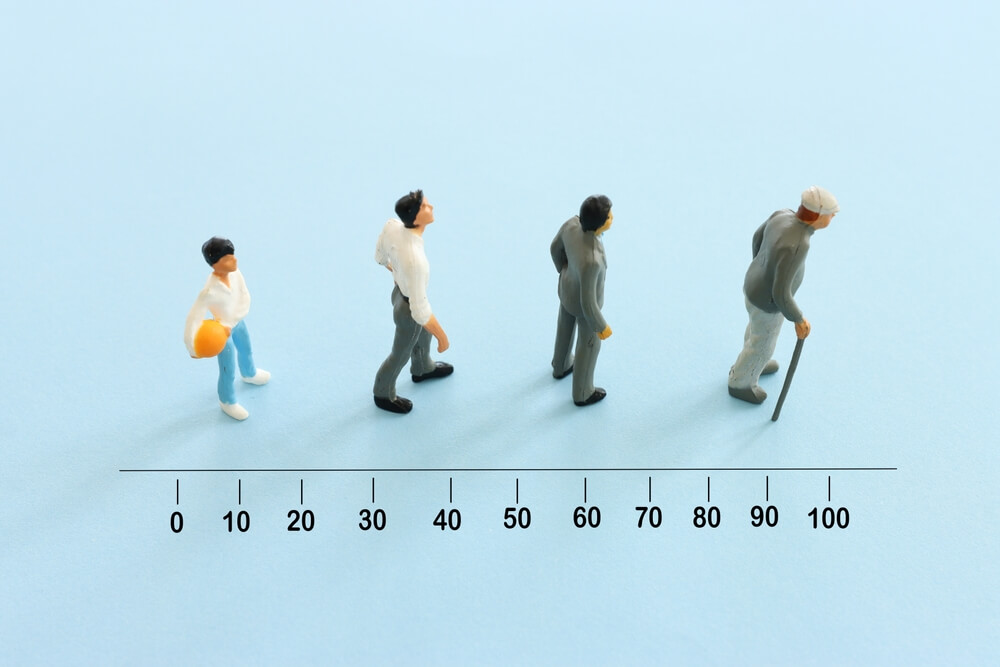
Areas of Exponentially Increasing Research on Human Longevity
The road to these increases in life expectancy is not uncharted. Advancements in different research domains are pushing this aging reboot forward. Here are some key areas where scientific discoveries shape our new understanding of aging.
Stem Cells and Telomere Regeneration
Stem cells are essentially starter cells, the building blocks for all other cells in the body. These cells are considered the “matriarchs” of the body and support and repair damaged tissues when needed most.
This amazing regenerative capacity shows how important it is to have a large number of healthy stem cells in the body. However, their ability to multiply and grow is hindered by the length of telomeres (the protective caps at the ends of chromosomes). With each duplication, these caps shorten, leading to an inability to reproduce, a condition known as senescence.
Science shows there is hope—“telomere length is affected by a combination of factors,” including:
- Stress
- Diet
- Exercise
- Sun exposure
- Smoking
- Exposure to pollutants
The human body can adapt and regenerate itself mainly because of the role stem cells play in the process. Lifestyle changes addressing these factors can help protect stem cells. However, there are other solutions that specifically target cellular aging processes. These promising interventions can make these lifestyle modifications even more effective.
Senolytics
Senescent cells are those that have entered a permanent state of arrest. Because these cells no longer divide or regenerate, accumulation of these “zombie cells” in the body significantly contributes to aging. They do this by:
- Releasing harmful molecules and compounds known as the senescence-associated secretory phenotype (SASP), which can induce inflammation.
- Altering the environment and disrupting the function of surrounding cells and tissues, impairing their ability to repair and regenerate properly.
- Evading the immune system’s detection mechanisms, which can allow senescent cells to build up in certain tissues and overwhelm the area, potentially damaging it.
Targeting and eliminating these cells could transform the body from the inside out. This process drives senolytics, a form of longevity medicine that aims to remove harmful cells and replace them with healthy ones.
Consider the senolytic drug potential for:
- Selective elimination: Senolytics can induce programmed cell death in senescent cells while sparing healthy ones.
- Promoting regeneration: Senolytics create space for the proliferation of healthy cells that can repair and regenerate tissues in the body.
- Combination therapy: Senolytics may synergize with other interventions, potentially optimizing the impact of aging reversal.
Science has demonstrated senolytic drug capacity for addressing the root causes of aging, “potentially alleviating over 40 conditions in preclinical studies.”
Autophagy
Aging research focuses heavily on the body’s self-renewal mechanisms. One important process is autophagy, the natural renewal process through which our cells recycle and repair dysfunctional components. This process is essential for maintaining cellular homeostasis and could be vital to promoting human longevity.
Autophagy essentially “acts as a janitor by removing the damaged organelles and proteins,” but it slows down and becomes less efficient as we age. Strategies to enhance autophagy, however, could help this process for preserving and promoting healthy cells.
Many of these strategies are already at our disposal, including:
- Calorie restriction
- Intermittent fasting
- Physical activity
As a therapeutic approach to age-related disease, autophagy could mitigate cellular decline and help regulate various body processes.
Gene Editing with Immunomodulation
In pursuing longevity, gene editing combined with immunomodulation may appear to blur the line between science fiction and reality. In essence, immunomodulation refers to the ability to manipulate the genetic codes that underpin human existence.
Here’s how these two processes work:
- Immunomodulation: This process effectively modifies and regulates the body’s immune response, altering its intensity. It’s often used to help fight diseases, treat allergies, and maintain balance in over- or underactive autoimmune conditions.
- Gene editing: This technique is used to change parts of a person’s genetic code so that the body interprets it differently. As of now, scientists are employing this process to help address and alter the genes that cause genetic diseases like cystic fibrosis or sickle cell anemia.
Gene editing is a cutting-edge frontier for aging science. Combined with immunomodulation, the potential for “various gene editing techniques used to fine-tune immune systems” offers a view into a future where age-related disease can be modified within the blueprints that govern cell functions.
Immunomodulation is complex and revolutionary, but for those grappling with the consequences of genetic disease or a challenging progression of age-related decline, it represents a chance to essentially rewrite their body in favor of vitality.
Immunologic Targeting
Hope for a long healthspan exists in strategies that bolster the body’s natural defenses: the immune system.
At its core, immunologic targeting draws on the immune system to defend the brain and body against cellular decline and dysfunction. It finds and removes harmful cells, effectively helping the body restore balance.
Immunologic targeting is already applied in various medical contexts, such as:
- Vaccines: These work by stimulating the immune system to produce a protective response against specific pathogens.
- Anti-TNF drugs: These help to prevent the immune system from attacking healthy tissues in those with autoimmune diseases.
- Monoclonal antibody therapy: This process utilizes clones of helpful antibodies designed to target, bind to, and help fight certain harmful substances in the body.
Immunologic targeting paves a hopeful path for improving the quality and potential of human longevity. The process could zero in on the culprits of aging to encourage a more resilient, balanced state in the body, a vital aspect of overall well-being.

FDA-Approved Drugs Repurposed for Healthy Aging Potential
Though it could seem counterintuitive, one new approach to healthy aging can involve the same conventional medications and treatments that have been used for a long time. This strategy has gained traction among researchers specializing in aging, specifically with FDA-approved drugs that can be repurposed to promote healthier aging and enhance longevity.
One significant benefit of repurposing existing medications is that these drugs have already undergone rigorous testing and approval for other indications. This testing allows researchers to bypass lengthy, costly processes associated with developing new forms of longevity medicine.
Repurposing these drugs is critical to this approach, but it’s not without its challenges. Existing prescription drugs are not approved for aging largely because aging is not considered a treatable disease.
However, some drugs, like metformin, a medication for managing type 2 and gestational diabetes, have demonstrated the off-label potential to address the hallmarks of biological aging.
Existing Medications to Extend Human Healthspans
Nir Barzilai, MD, director of the Institute for Aging Research at Albert Einstein College of Medicine, is credited with discovering the first longevity gene in humans. At the 2024 Longevity Summit, he shared compelling new research findings on longevity through the drug metformin.
Amazingly, metformin targets all of the hallmarks associated with aging. Its favorable safety profile, minimal side effects, and affordability make it an excellent option for enhancing healthspan and human longevity.
Watch: 2024 Longevity Summit—Dr. Nir Barzilai
Any drugs that target the following hallmarks of aging could be considered for their healthy aging potential:
- Metabolic dysregulation
- Epigenetic changes
- Mitochondria quality control
- Inflammation/declined immunity
- Proteostasis
- Senescence (SASP)
- Chromosome maintenance (DNA repair efficiency)
- Stem cell dysfunction
Cleveland Clinic’s Chief Wellness Officer Emeritus Michael Roizen, MD, FACP, spoke at the 2024 Longevity Summit about the effects of existing medications and treatments, including water pills, on age-related diseases.
In one study, researchers analyzed over 1,300 existing drugs to identify those that could reverse the genetic signatures associated with Alzheimer’s disease (AD):
- When tested on animal subjects, bumetanide—a pill used to treat fluid retention—improved deficits related to the disease, including cognitive function.
- “In humans, bumetanide exposure was associated with a significantly lower AD prevalence,” though complete human testing is lacking.
Watch: 2024 Longevity Summit—Dr. Michael Roizen
20 Tips for Longevity
Achieving longevity involves many short- and long-term decisions that support health and wellness. These tips, shared at the 2024 Longevity Summit, can make a difference:
- Maintain blood pressure levels in the normal range. Monitor your numbers regularly and take steps to keep them in check, like reducing sodium intake and exercising regularly.
- Manage stress by cultivating purpose in life, either through enjoyable activities or pursuing goals you find meaningful. Hobbies that promote well-being can do much to relieve stress.
- Incorporate four types of exercise in your routine: endurance, strength, balance, and flexibility. This can include activities like walking or jogging, weightlifting or bodyweight exercises, yoga or tai chi, and stretching or Pilates.
- Play “speed of processing” brain games. Puzzles, memory games, and apps specifically designed to improve cognitive skills are great options.
- Consume sources of omega-3 fatty acids. This includes fatty fish, flaxseeds, walnuts, and plant oils, all of which support brain health.
- Practice time-restricted eating by eating only during daylight hours. This form of intermittent fasting can promote a healthy calorie intake and better align with your natural circadian rhythm.
- Avoid processed foods. Eliminating these foods, including those high in sugar, unhealthy fats, and artificial additives, can help reduce the risk of obesity, diabetes, and heart disease.
- Prioritize sleep and rest. This allows your body to repair and recharge, which is crucial for supporting your overall health.
- Avoid exposure to toxins like tobacco and bisphenol A (BPA). Both of these substances impact your respiratory system, cognitive health, and hormonal balance.
- Limit screen time, especially before bedtime. This is one way to support a less sedentary lifestyle, improve sleep quality, and reduce eye strain and fatigue.
- Consider consuming coffee in moderation, especially without additives. Coffee has important antioxidant benefits, which can potentially improve brain and body function.
- Consume nuts and blueberries. Nuts like almonds and walnuts, along with antioxidant-rich berries, boost nutrient intake and support balanced wellness.
- Take essential supplements like a multivitamin. These supplements can help fill any nutritional gaps in your diet and invest in your health with a helpful nutrient boost.
- Stay current with medications and therapies that address aging. Remaining informed is the best way to prepare for the years ahead and can help you make more educated decisions about your long-term health.
- Consider preventive treatments to address health issues and their risk factors early. Health conditions caught in the early stages can be managed promptly and sometimes warded off entirely.
- Consider infrared sauna sessions several times per week, as suggested by Dr. Michael Roizen. The heat and humidity promote relaxation, improve circulation, and potentially support detoxification in the body.
- Practice good dental hygiene and visit your dentist regularly. Routine and thorough brushing and flossing prevent oral health issues that could impact your overall health.
- Ensure your immunizations are current. These protect against preventable diseases and health conditions, like long COVID, and can support overall immune function and reduce inflammation.
- Engage in activities that stimulate your senses, like aromatherapy. This is not only an excellent way to boost your mood, but it’s also helpful for the brain to engage in sensory-stimulating activities.
- Consume nutrient-rich foods like leafy greens. Some examples include spinach, kale, collard greens, and arugula, all full of vitamins, minerals, and antioxidants.

Peak Performance at Any Age with Hyperbaric Oxygen Therapy (HBOT)
Among cutting-edge therapies to help enhance the way we age, hyperbaric oxygen therapy (HBOT) has exhibited impressive results.
Amir Hadanny, MD, PhD, chief researcher and head of global clinical operations at Aviv Scientific and chief medical officer at Aviv Clinics, is one of the world’s most prolific researchers in the field of hyperbaric oxygen therapy. In collaboration with the research team at the Sagol Center, he has published numerous articles about the effects of HBOT on aging.

HBOT and Regenerative Potential
Rejuvenating cell function and tissue health is the keystone of hyperbaric oxygen therapy. HBOT triggers the brain and body to start healing themselves. It involves entering a pressurized chamber and breathing pure oxygen to help the body absorb increased levels.
As Dr. Amir Hadanny explains, Aviv Clinics uses the world’s most advanced HBOT therapy, involving fluctuating oxygen levels “called the hyperoxic-hypoxic paradox,” to further increase this potential. The alternating periods of normal oxygen and high oxygen levels create a dynamic environment that effectively maximizes the benefits of HBOT.
By this very process, the body begins to accelerate healing and experience powerful regeneration. This unique protocol spurs the body to respond by initiating multiple regenerative processes crucial to support healthy aging.
Watch: 2024 Longevity Summit—Dr. Amir Hadanny
This same protocol of HBOT can be incorporated as a component of the holistic Aviv Medical Program, which can combine interventions like cognitive exercises, physical training and nutritional coaching to tap into the potential of both the brain and body.
HBOT to Enhance Performance and Wellness
Nobody wants to slow down as they age, though some level of decline in cognitive and physical performance is natural. Whatever the cause, utilizing solutions that improve performance can reduce the slowing effects of aging.
HBOT, delivered using a specialized protocol, is recognized for its potential to spark the body’s self-healing mechanisms. It’s also known for its potential to improve functional health and wellness, as it helps the body optimize cellular function.
HBOT therapy also helps address the causes of decline. Studies argue that it could be used clinically “in persistent cases of inflammation.” According to Longevity Summit presenter Dr. Joseph Maroon, inflammation is one of the most significant contributors to numerous diseases and health conditions.
Joseph Maroon, MD, FACS, clinical professor and vice chairman of the Department of Neurological Surgery at the University of Pittsburgh Medical Center, discusses the benefits of HBOT therapy for enhanced performance below.
Watch: 2024 Longevity Summit—Dr. Joseph Maroon
Explore Exciting Advances in Aging, Health, and Longevity
To discover more about the transformative potential of innovative aging science and solutions for promoting human longevity and livelihood, we invite you to view the full 2024 Global Aging Consortium (GAC) Longevity Summit.
At Aviv Clinics, we empower our patients to take charge of their well-being. Explore other topics and resources to learn more about achieving optimal health at any age.
Our medical clinic is committed to longevity and healthy aging. We provide innovative treatments and personalized care plans to help patients live longer, healthier lives. Discover what our clients say about their experience with the Aviv Medical Program.
Aviv Medical Program provides you with a unique opportunity to invest in your health while you age

